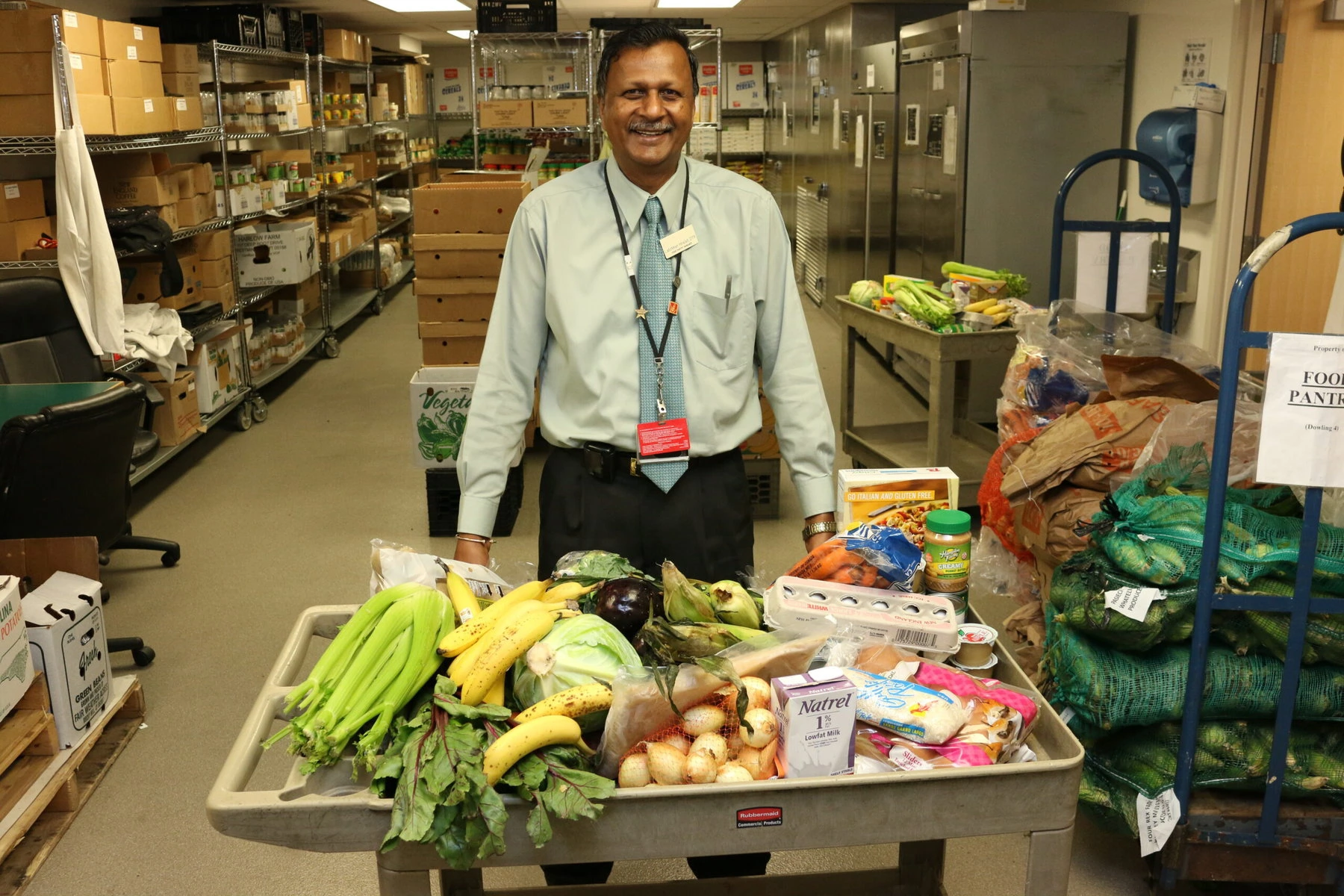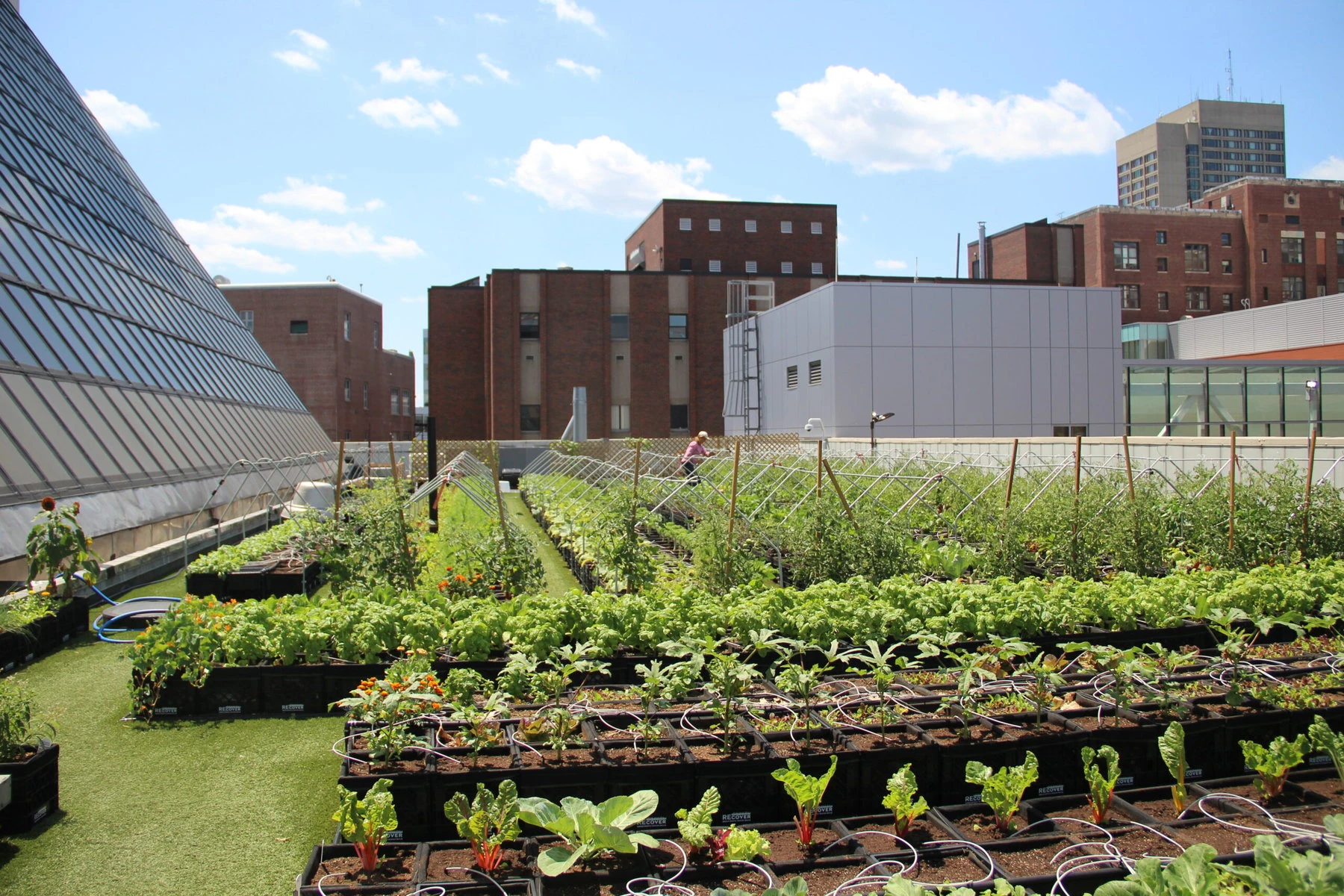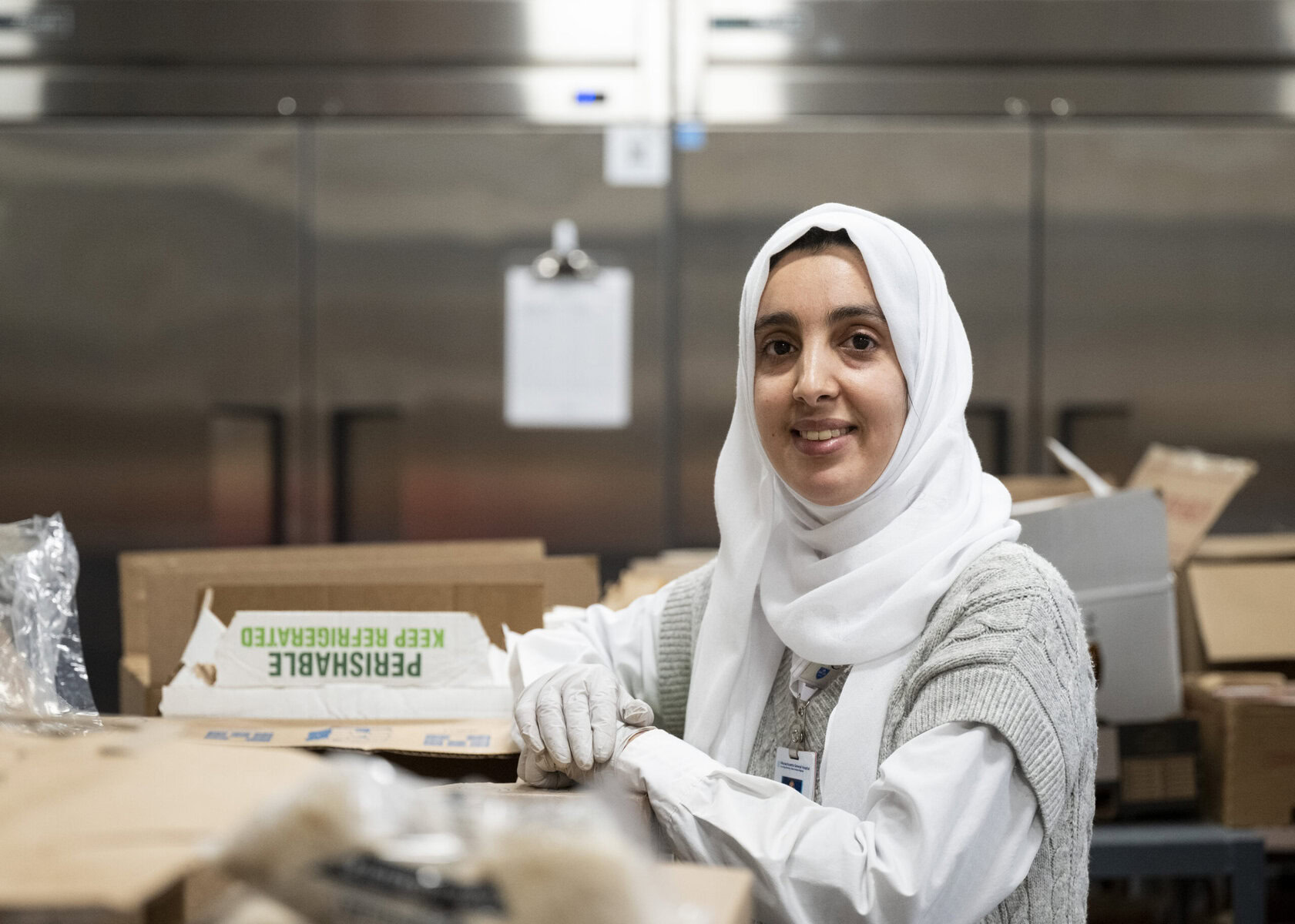



“Patients are people” is a series that depicts how holistic health is transforming patients’ journeys. The series is supported with funding from UPIC Health.
TThe waiting room in the basement of Boston Medical Center is just like any other, with chairs and a TV. But when patients are called, they don’t go into exam rooms. Instead, Preventive Food Storage.
Over the next few minutes, staff customize the grocery carts to fit each patient’s needs: Patients with kidney disease get no potassium-rich foods like oranges or potatoes; diabetics get whole-grain pasta and brown rice; and everyone gets to take home vegetables, fruits, and other fresh produce.
The old saying, “An apple a day keeps the doctor away,” has some truth to it: Recognizing that nutritious food is key to good health, doctors at Boston Medical Center are prescribing apples.


“Food is a basic item that people take for granted,” pantry manager Latchman Hiralal said. “We need to make sure people are eating the right kind of food.”
The pantry opened in 2001 after doctors raised the alarm when many of their patients reported not having enough food for their families. Located on the hospital’s campus, the pantry was a pioneer in providing nutritious food directly to the health care system — and it’s proven to be highly impactful: Originally, the pantry was expected to feed 500 people a month, but now it feeds more than 6,200.
The medical center’s initiative is part of a growing movement to partner with health care providers and anti-hunger programs, with options ranging from delivering tailored meals to filling prescriptions to running food pantries within health care facilities — collaborations that experts say have positive health effects, improve access to quality food, and reduce stigma.
“It’s part of the usual care: ‘If you go to the pharmacy, you also go to the therapeutic pantry,’ or ‘You could sign up for home-delivered meals for your chronic condition,'” said Catherine D’Amato, the center’s president and CEO. Greater Boston Food Bankis partnering with preventative food pantries and other Massachusetts health care organizations. “That’s where the coordination of care happens.”
debtFrom childhood through adulthood, food insecurity impacts health. Hunger has been linked to impaired brain development, asthma, diabetes, heart disease and other illnesses. Researchers say the medical costs associated with hunger are Over $160 billion Nationwide in 2014. In Massachusetts alone, the figure was $1.9 billion.
Solving hunger is not just about quantity of food, but also about quality: Healthy produce, fresh meat, and dairy products tend to be expensive, making them difficult for budget-conscious families to afford.
But these are the foundations of a healthy diet. Both the medical community and the anti-hunger community have long understood the importance of nutrition to health, but they haven’t worked together much.
Are you overwhelmed by negative news?
Sign up for the Reasons to Be Well newsletter.
“We’re managing people’s illnesses, but companies aren’t necessarily focused on preventing illness,” D’Amato said.
In the past few decades, this has begun to change: Faced with the high costs of treating symptoms related to food insecurity, health systems, health insurers, and government programs have become interested in ways to support access to nutrition.
And Boston Medical Center was one of the first hospitals.
debtAlternatively, patients who visit the preventive food pantries are referred through their health care providers. Boston Medical Center screens all patients for social determinants of health, including food insecurity, Hiralal explains. Anyone who doesn’t have enough to eat is included.
Patients aren’t required to be on a therapeutic diet to use the pantry, but that’s common: Patient referrals document their health conditions so Hiralal, a registered dietitian, and the pantry staff can ensure patients are receiving foods that meet their needs.
“We need to know if anyone has diabetes, high blood pressure or kidney failure,” Hiralal said.


Patients can visit twice a month and each time can take home enough food to feed their family for three to four days.
One of the program’s unique features is its focus on fresh ingredients. Hiralal said half of the items brought to the pantry are perishables, in contrast to many food shelves that lack refrigerated space. Some of the produce is locally grown, grown on a farm on the hospital’s roof. Of the 5,000 to 6,000 pounds of vegetables harvested there each year, 70 percent are distributed through the pantry.
The program also works with the hospital’s teaching kitchen, where a nutritionist chef hosts classes to teach people how to prepare healthy meals. Recently, the kitchen hosted a group of Hispanic and Haitian families who came to share their recipes with the hospital’s nutritionists. The pantry helped provide the ingredients needed for these classes, Hilaral says. “We’re learning at the same time, because different cultures have different ways of cooking and different types of foods they can eat,” he says.
Fear of being judged for going to a food pantry can be a big barrier to accessing healthy foods, Hiralal said, but integrating the service into the health care system can break down much of that stigma.
“They know this is part of their care,” he said. “Their doctors have given them referrals to come to the food pantry.”
SSince Boston Medical Center opened its pantry more than 20 years ago, the idea has caught on, and Hiralal has advised about 100 other hospital systems, including those in the Boston area.
of Greater Boston Food BankMassachusetts General Hospital’s Revere Healthcare Center, which provides much of the stock for the prevention food pantries, is expanding its collaboration with other health care organizations. Pantry opened An organization focused on plant-based foods in 2020. Community ServingFounded in 1990, the organization delivers meals tailored to the dietary needs of people living with cancer, HIV/AIDS, diabetes and other chronic illnesses. Mobile pantries installed at health centers The Food Bank of Eastern Massachusetts Proposed New Cancer Hospital In Boston, we plan to have a pantry on the first floor.


Dr. Lauren Fichtner, a pediatric gastroenterologist at Massachusetts General Hospital, often sees underweight infants. She regularly asks her patients if their families have enough to eat and refers them to nutrition access programs or local food shelves. Now, she can refer them to the plant-based food pantry at Revere Medical Center.
Fichtner also said: Senior Health Research Advisor A physician with the Greater Boston Food Bank, she has worked to strengthen the connection between the exam room and healthy food throughout her career: As a medical student and intern at Boston Medical Center, she volunteered at the Preventive Food Pantry, where she did her residency.
“As a physician, it’s nice to be able to provide food,” Fichtner said, “and have it right there so patients can pick it up on their way in.”
Linkages to the health system have an impact. GBFB research shows that of people screened for food insecurity at a health care setting: 87% followed up Recommended resources:


“Physician recommendations are always helpful,” Fichtner says, “and if families have a really good relationship with a doctor they trust and that doctor recommends something, they’re more likely to want that.”
Patients’ use of these services is often documented in their medical records, which Feuchtner sees as a benefit to health care providers: It’s not helpful to encourage food-insecure families to buy healthier, more expensive foods, but if they’re using a food-access program, doctors and patients can work together toward health goals.
And patients are benefiting: Food insecurity and childhood obesity rates have increased nationwide during the COVID-19 pandemic. But obesity rates have fallen among children whose families received food from Massachusetts General Hospital’s plant-based food pantry. The percentage of children with a body mass index (BMI) above the 85th percentile has decreased. From 57% in January 2021 to 49% by February 2022.
Boston Medical Center doesn’t track the health of patients who visit the prevention food pantry. The program provides each family with about a week’s worth of food each month, so changes in health don’t necessarily correspond to the pantry’s services, Hilarol noted. But the program does survey clients to understand their experience, and Hilarol says 90 percent are satisfied. One comment that stuck with him shows the magnitude of the impact: “This is like a second home to me.”
Resources are a challenge. While Boston Medical Center has expanded its food pantry space, Hiralal said many hospitals have limited space and funding for similar programs. Collaborations require an investment of staff time and resources. And the cost of food is also a challenge. Price 5% increase from 2022 to 2023.
D’Amato, who has worked in the anti-hunger movement for decades, has seen attitudes change: There’s a growing understanding within the health care system about how food can help manage chronic disease, and tackling hunger can become even more fundamental.
“When we think of food as medicine, we’re treating a problem,” D’Amato says. “In the early stages, chronic disease doesn’t exist, and food helps prevent chronic disease.”



